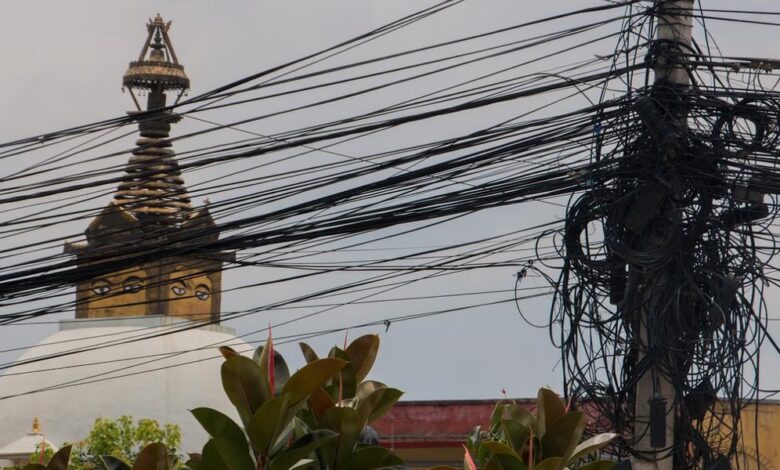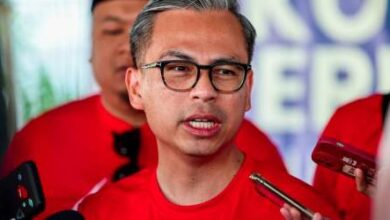Flip-flop policies dishearten domestic investors

The Nepal Investment Summit 2024 that was inaugurated by Prime Minister Pushpa Kamal Dahal in Kathmandu hopes to attract foreign investors at a time when domestic investors are not happy with the government’s policies.
While private electricity producers have long complained of bureaucratic delays and extortion, now it is the turn of ISPs (Internet Service Providers) to go on warpath.
Nepal Telecommunication Authority (NTA) and the Information and Communication Ministry accuse ISPs of not paying their share of the Rural Telecommunication Fund and royalty, and have blocked them from exchanging Indian currency to pay for bandwidth.
“Indian bandwidth providers Tata and Airtel could cut off services to Nepal because of the delay in payment due to the government not exchanging Indian currency to pay them,” says Sudhir Parajuli of the Internet Service Providers’ Association of Nepal (ISPAN).
Nepal’s ISPs owe Indian bandwidth providers up to Rs 5 billion, and Parajuli says they are getting “nervous” about payment.
It is NTA that has to recommend to the Rastra Bank to give ISPs the facility to exchange Indian currency. But no such recommendation has been made for the past five months.
The NTA, however, says that the ISPs were supposed to provide 2% of their income for the Rural Telecommunication Fund and 4% royalty to the government. An internal investigation by the ministry noted that the ISPs owed Rs2.5 billion in unpaid fees and royalty.
But the ISPs say the government has added more taxes and royalty in contravention of an agreement made five years ago. Says Parajuli: “The government is trying to squeeze us in violation of previous agreements. The Communication Ministry created this problem, it is their responsibility to resolve it.”
After a fall in tax revenue during the pandemic, the government unilaterally increased the tax on IPs to 13% who opposed it, saying the added cost would be passed to customers and make the Internet expensive. After that a compromise agreement was reached according to which the government removed the tax on maintenance and customer service.
In addition, an agreement was reached to cap the tax at 2% for the Rural Telecommunication Fund and 4% as royalty. Which meant that if a customer was paying Rs 1,000 per month for an internet connection, only the Rs500 maintenance and service cost would be taxed 4%, 2% for rural telecommunication and 13% service tax.
The Cabinet in May 2019 also decided that there would be no tax on installation equipment like routers. A subsequent amendment to the Telecommunication Regulation also stipulated that fixed wired broadband could also set aside 50% of their fees as maintenance cost. But the Accountant General’s office raised questions about this, even though the Public Accounts Committee of Parliament had cleared it.
But after the NTA wrote to the ISPs in 2019 to pay the higher royalty and taxes, Worldlink took the matter to the Supreme Court which issued an interim verdict in favour of the ISPs.
“The Communication Ministry is trying to extract money from us in violation of the laws of the land, the government’s own previous decisions and the view of the Parliamentary committee,” says Parajuli, “this puts the public’s basic need for affordable internet service at risk.”
The main issue in the dispute between the ministry and the ISPs is whether maintenance fees should be taxed for the Rural Telecommunication Fund and royalty. ISPs say it should not be, and the previous governments had already agreed to this. The ministry does not agree.
There is also disagreement in the Telecommunication Regulation 1997 about what constitutes ‘nett income’. The regulation says it includes deposit, service fee, VAT, and other taxes. IPSs say this rule clearly means that maintenance and service fee should not be taxed.
“The ISPs were allowed not to pay the service tax on maintenance fee, but not for royalty and Rural Telecommunication Fund,” says NTA’s Santosh Poudel. “The ISPs have to pay this, they have no alternative.”
One senior ISP executive told Nepali Times: “The government is trying to forcefully squeeze money out of us, such actions are not investment friendly. On the one hand the government is holding an investment summit, and on the other it is extorting businesses. At this rate, we will all close down for good.”
The British Embassy has also stepped into the fray and objected to Finance Minister Barsha Man Pun about the government pressure on ISPs. The British government’s CDC Group has invested Rs1.35 billion in Worldlink.
One former civil servant says the root of the problem was the government’s decision in 2019 to impose a double tax on IPSs who were already paying royalty to the government.
He adds, “The government imposed a tax on internet service and to resolve the dispute the government tried to tax the ISPs without making its customers pay more, that was where it all started.”
NTA’s Paudel said that since the matter was sub judice it was not necessary to explain it further: “The ball is in the courts.”
The Supreme Court’s hearings on a case filed by Worldlink and Subisu are slated for 28 and 29 May.


